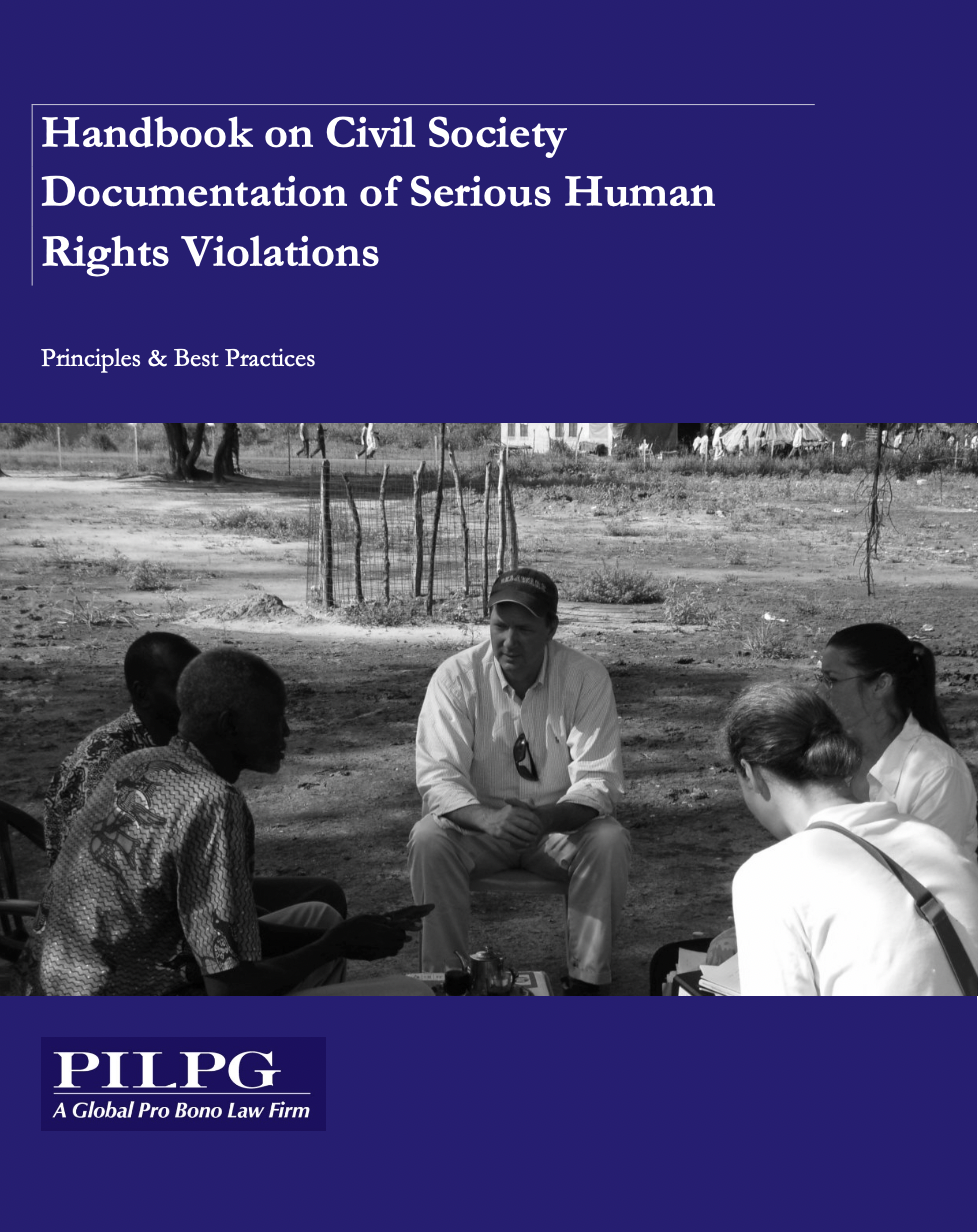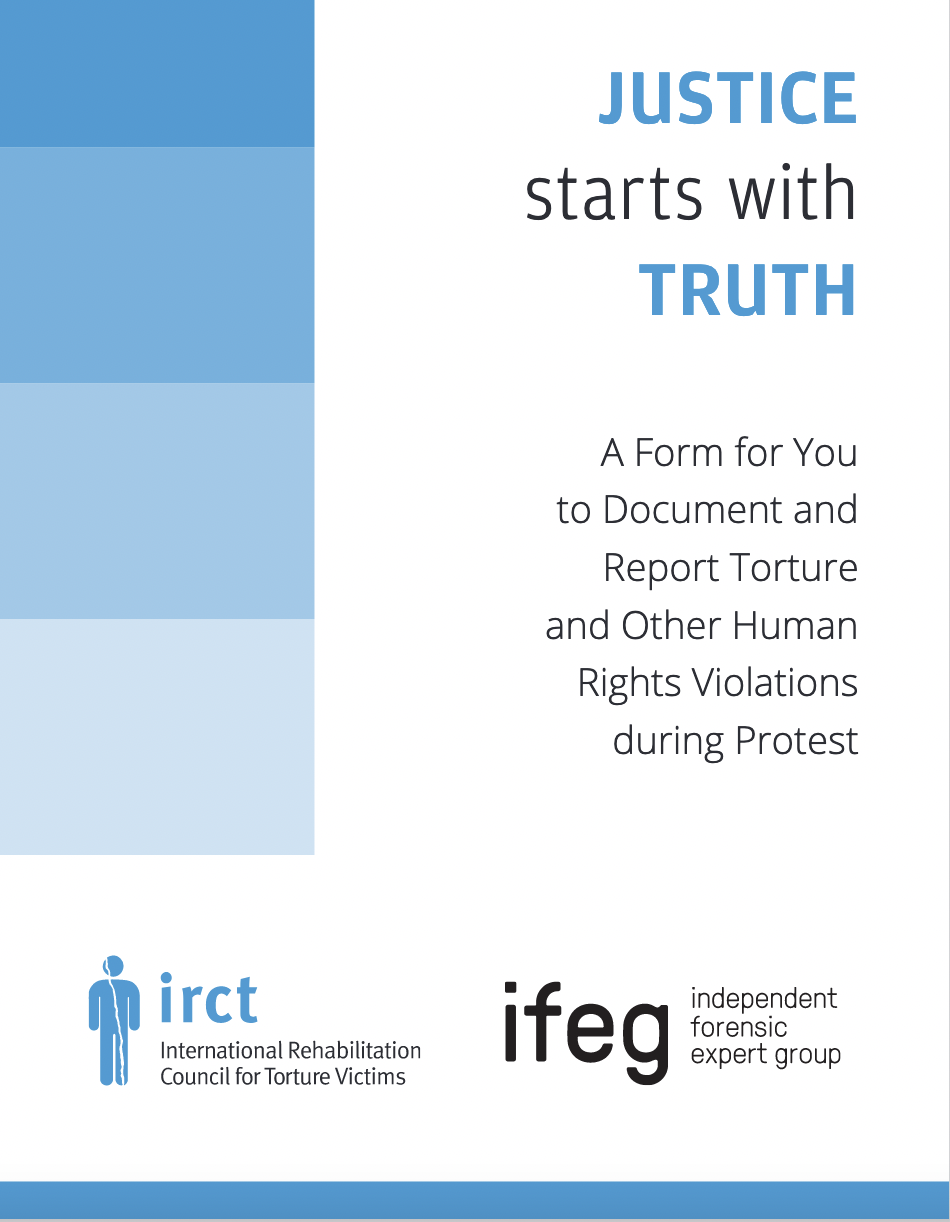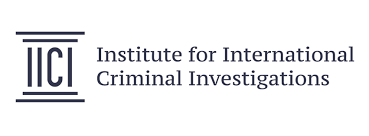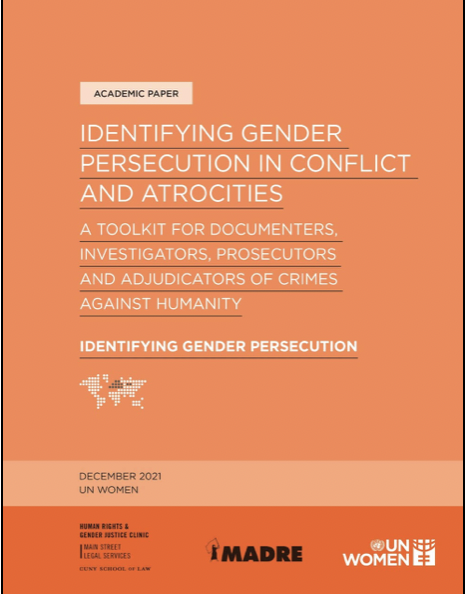Handbooks and Field Guides
This page contains several useful handbooks and field guides to documenting serious human rights violations in a conflict or post-conflict environment. Click on the cover of each handbook or field guide to download the resource. This is a continually updating page—be sure to check back for additional resources.
PILPG’s Field Guide for Civil Society Documentation of Serious Human Rights Violations
The purpose of this field guide prepared by PILPG is to provide practical assistance to those who encounter information of gross human rights violations on how best to document such information when (a) no professional investigative authority is immediately available AND (b) danger existsthat the information or evidence might be damaged or lost.
PILPG Handbook on Civil Society Documentation of Serious Human Rights Violations
This PILPG Handbook provides guidelines and best practices for the collection and management of information on serious human rights situations for those that are not professionally trained in such documentation practices.
Tech Tools for Human Rights Documentation: A Snapshot of the Landscape
This report, prepared by PILPG, The Engine Room, and HURIDOCS, focuses on specific tools and tool development in the human rights documentation space. It presents
findings from explorations of some of the tools currently in use, and from interviews with eight tool authors. This report has been written to benefit civil society organizations looking for tech tools to support their documentation work.
PILPG Documentation Manual on the Elements of Core International Crimes
The purpose of this manual is to provide background on core international crimes and the elements of those crimes, and questions relevant to those crimes for documenters to ask during interviews with victims and witnesses. The four categories of core international crimes are genocide, crimes against humanity, war crimes and the crime of aggression.
Pursuing Justice for Mass Atrocities: A Handbook for Victim Groups
The United States Holocaust Memorial Museum’s Pursuing Justice for Mass Atrocities: A Handbook for Victim Groups offers guidance on what victim groups can do to advance justice efforts during and in the aftermath of genocide and related crimes against humanity. Drawing on dozens of real-life examples and expert interviews, the Handbook offers practical advice and strategic insights in clear and accessible language.
Berkeley Protocol on Digital Open Source Investigations
A practical guide on the effective use of digital open source information in investigating violations of international criminal, human rights, and humanitarian law prepared by the University of California Berkeley School of Law Human Rights Center.
Video as Evidence Field Guide
Created by Witness, this Field Guide helps filmers use videos to expose abuse and bring about justice. This resource helps ensure that more cameras in more hands can lead to more exposure and greater justice.
Torture & Other Human Rights Violations Reporting Form
From International Rehabilitation Council for Torture Victims, this form has been created for use by all victims and witnesses of torture and other human rights violations during protest, arrest, and detention. This form is intended to assist you to document and report your experience and any evidence of physical harm. If you wish to file a legal complaint, this form can help you to document your experience and injuries. However, an interview with a legal advocate is still recommended. This form does not solicit all information necessary for the filing of a legal complaint, such as witness or perpetrator identities
Памʼятка щодо фіксації доказів злочинів проти цивільного населення (Memo to Record Evidence of Crimes Against Civilians) (Created by the Ukrainian Helsinki Human Rights Union):
This brief document defines a war crime, gives examples, and explains how to record instances that may be observed.
Basic Investigative Standards For International Crimes Investigations
The Basic Investigative Standards (BIS) for International Crimes provides a range of minimum standards for the investigation of international crimes. The BIS relies on the most widely accepted international standards, including those employed by the International Criminal Court, increasing the likelihood that relevant information is collected in ways that preserve its potential to be useful evidence in future national or international trials or accountability mechanisms.
Guidelines for Remote Interviewing
These guidelines focus on remote investigative interviews that may form part of non-criminal and criminal investigations into international crimes or grave human rights violations. “Remote” includes interviews conducted via online video-calls and audio-only phone calls. The guidelines mainly concern investigations that take place in resource-constrained, conflict-affected or similarly challenging contexts and where the interviewer(s) is not in the same location as the interviewee.
Identifying gender persecution in conflict and atrocities: A toolkit for documenters, investigators, and adjudicators of crimes against humanity
This toolkit for identifying gender persecution in conflicts and atrocities aims to close the accountability gap by providing a framework for recognizing and understanding illicit conduct that amounts to gender persecution to investigators, lawyers, advocates, documenters, first responders, and others who engage in identifying gender-based crimes in conflict and atrocity settings. Available in Russian.












